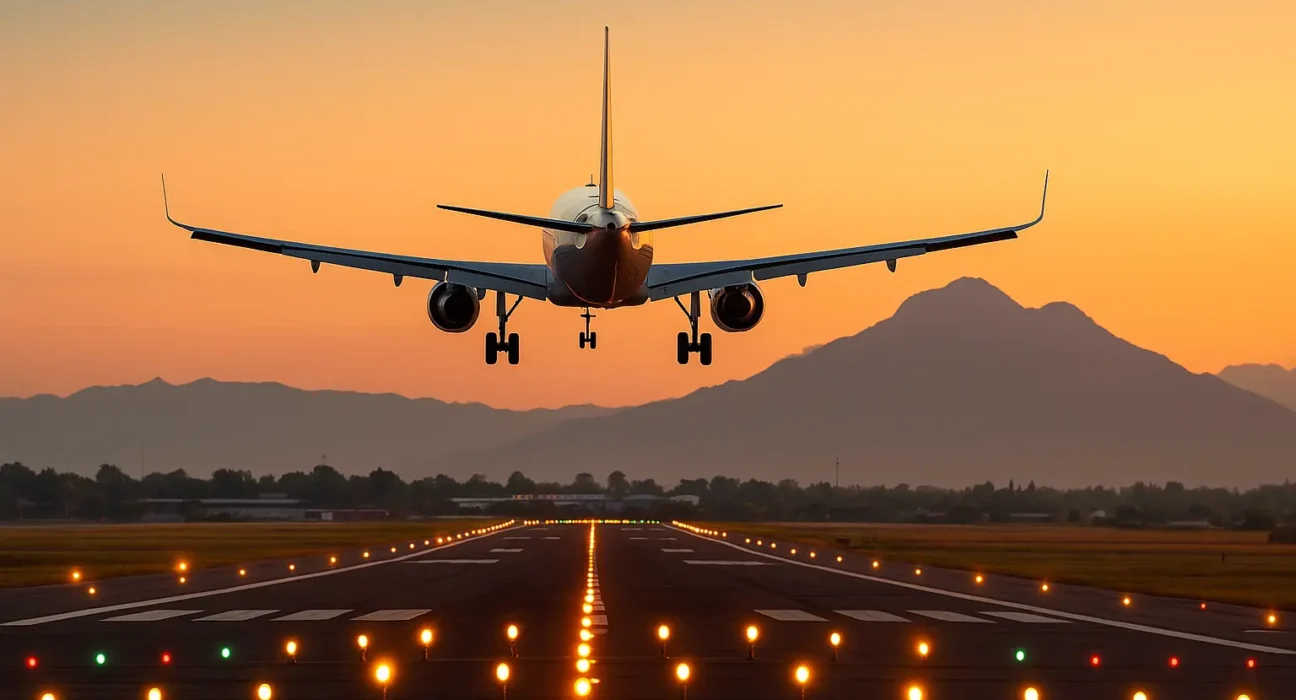Pakistan Reopens Airspace to All Flights After Ceasefire Agreement with India

Pakistan’s reopening of all civil and commercial airspace reflects a considerable softening of regional tensions, which had been brewing from a formal ceasefire agreement with India. Again, national airports have opened borders to allow unfaxed air travel, saving passengers’ hassle and backing airlines inhibited by the recent disruptions.
Officials announced the reopening of skies after a renewed adherence to the 2003 Line of Control ceasefire which came after there was an escalation of the military activities between the two countries. This refined understanding is a substantial swing towards normality in the region, and the possibility of a diminution of wider geopolitical tensions.
NOTAM Confirms Restoration of Full Flight Operations
According to a NOTAM from the Pakistan Airports Authority, all flights have been cleared to use the country’s airspace, domestic and international as well as cargo flights.
When the NOTAM was released the airlines updated their operations and their new flight planning provided new routes to Islamabad, Karachi, Lahore, Peshawar, Quetta.
Based on the NOTAM, limitations created during escalation have now been eliminated and airports will operate normally.
Civil Aviation Resumes After Tense Weeks
Upon reaching the peak, there was cancellation or overrouted number of commercial flights scheduled with huge inconvenience to passengers and significant loss of profit to airlines. Many airlines experienced adverse logistical implications either by pausing flights over Pakistan temporarily, or by choosing a circuitous flying route. Each of these resulted in increased transit time and fuel consumption.
The reopening of airspace has brought a badly needed relief to those passengers who had their previous flights canceled and did not know their itineraries. The local and global airlines have made efforts to reschedule and revive flights that earlier were hampered due to the airspace closure.
“We are delighted that we are resuming service and regional connections,” said a PIA spokesperson.
Ceasefire Agreement Plays a Pivotal Role
The reopening of the airspace is the latest result of the understanding reached between Pakistan and India after a major reaffirmation of the 2003 ceasefire pact along the Line of Control. The ceasefire comes after a period of active military operations and increased verbal warfare that escalated worry over a greater regional war.
Military specialists and diplomats on both sides undertook sincere backroom bargaining to conclude a cooperative settlement that should reduce hostilities and restore normalcy. The resumption of air traffic is an early accomplishment of the restated commitment to peace.
Airlines Advise Travelers to Check Schedules
After air travel reopened, airlines are reminding passengers to confirm their flights and new ones that are scheduled. As air travel settles to normal, the airlines are handling delayed bookings and rescheduling flights while returning their normal flying paths into use.
Airlines recommend authentic airline sites, fixed phonelines or airports’ electronic details for most accurate and ongoing transit fixtures. Some delays are to be expected at the early stage of the resumption period as air traffic control systems slowly return to their adjacent normal efficiency levels.
Global Aviation Authorities React
Three very prestigious international aviation associations are eager to participate in Pakistan’s open skies decision. The IATA commends the decision, stressing the need to resume transregional air corridors between Europe, the Middle East and Asia.
The reconfinement of this airspace significantly reduces long-haul flight time and fuel consumption, with direct advantages for the Gulf – East and Southeast Asia connections, especially.
Pakistan’s airspace is a vital component of the worldwide air transport infrastructure, according to an IATA representative. The presence of this route increases the operational efficiency and overall travelling convenience.
Economic and Diplomatic Implications
Apart from increasing air mobility, the restoration of airspace has got economic and diplomatic gains. Aviation firms can revamp fallen revenue and optimise freight delivery once airspace is reopened.
Politically it means reducing of animosity and going back to the opposite — concentrating on cooperation and diplomacy. This may provide a way forward for future negotiations, joint ventures and increased collaboration throughout the region.
Ensuring Passenger Safety and Operational Readiness
With the emergence of commercial travelling, the Pakistan Civil Aviation Authority’s (CAA) pledge to achieve compliance to all safety measures has been re-stated. CAA has confirmed that all the air traffic control systems, airport security measures and ground services have been revived to the previous capacity.
The government is collaborating closely with overseas aviation operators to ensure a secure transit for both inbound and outbound flights, paying particular attention to those flights that diverted before due to the shutdown.
A Return to Normalcy for Travelers
For most passengers affected by the temporary suspension, getting back to air travel is simply getting back to their freedom to move around and return to their normal lives. When flights resume, students, families, business people and tourists will have an opportunity to get back to their traveling time tables.
Lahore and Karachi residents got in a rush to airport counters and called helplines in a rush to find out new travel plans, which is evident of tremendous relief and expectation joy about life returning to normal conditions.
Final Thoughts: A Positive Step Toward Peace and Progress
Pakistan’s reopening its airspace is not just the end of a logistical problem, but a positive diplomatic face of conviction and regional peace. The importance of the air space in the overall political impasse as made its re-opening a vital strategy to recover confidence between both sides.
Since skies have reopened and airports to the pre-crisis conditions, there will be a focus on maintaining harmony, revitalizing travel trust, and making absolute openness possible in air travel.









